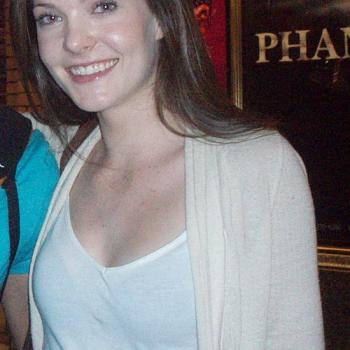During those summer breaks, I frequently was the only baptized male in attendance and was thus obligated to conduct these meetings. The attendees consisted of my aunts, my grandmother, former baby-sitters, and other women who were four or five times older than I. Occasionally we arrived late, and I caught a glimpse of the woman in front, demurely kowtowing to my headship as she scooted back to her chair and pulled the shawl off her head. It was difficult to project an air of authority and respect with my squeaky pre-teen voice, and I struggled to conjure up an eloquent prayer. But there was no other option.
Often, there was another boy, about two years older than me, who likewise showed up for the morning meeting with his mother. In the minutes leading up to 9:00, Bobby and I alternately made eye contact and diverted glances—each hoping the other would make a move to the front of the room and thereby letting the other boy rest easy. The minutes swept by. My mother nudged me, "Don't you think it's time to get started?" she whispered. I hesitated, silently hopeful that Bobby—by virtue of his two additional years of life—would stand up and call the meeting to order. But it was unfair to expect Bobby to conduct the meeting every day. And on some days, he wasn't there at all. So, reluctantly, I stood up, and walked to the front of the room.
I didn't feel very well equipped to lead all of those adults. And I felt positively silly later in the morning as I dictated, quite arbitrarily, who would be accompanying whom, and which women were to knock on the doors on the north side of the street, and which women were to knock on the doors on the south. Sometimes I was busy laughing with my sister, and had to be prodded back into my headship role by my mother politely saying, "Okay, Brother Zimmerman, tell us what to do."
Thus, in a way, abdicating my headship was a natural outcome of my observation that women were not, in fact, unequal. Growing up, I sensed the oddness of it all, but it was only once I had a girlfriend, then a fiancée, and then a wife that I detected the absurdity. My spouse, I recognized, was not like an employee or a child or a pet—she was a co-creator of our marriage and an equal hand in our new life together. She didn't need a head. She had her own. And thus my announcement that Friday evening during the commercial break.
About a year earlier, Jennifer and I abandoned our faith in the Watchtower's teaching of Noah's Flood, and in another year I would come to accept that the Witnesses were wrong to deny evolution. I continued as a Jehovah's Witness even after these personal revelations, figuring the religion's leaders were simply misguided in the scientific arena. But dissenting from their patriarchal requirements implied, at least to me, that their errors were more pervasive. Was the religion wrong, not only about science, but about gender equality as well?
In the years that followed, I was acutely aware of the religion's inherent sexism. My wife was not allowed to deliver speeches; she could not pray aloud; she could not assist with the congregation's literature or accounts departments; she could not even help pass the microphones during the question and answer discussions simply because she was a woman. The only activities women were given full latitude in were the most unpleasant works the religion required: cleaning the Kingdom Hall and door-to-door preaching. When the elders visited our home to encourage us, they spoke predominantly to me. When we missed a meeting, they approached me to ensure all was well. They paid Jennifer the same amount of attention as they would a small child—a brief hello and then on to the head of the house.
My wife grew tired of the pointless door-to-door work. She allowed first one month, and then two, to pass without preaching at all. Only then did the elders take notice. They approached me—not Jennifer—one evening after the meeting and advised that if I wished to be appointed to greater positions in the congregation, my wife would need to begin regularly participating in the preaching work again. I nodded politely, ignoring the inconsistency. Many Witness men were elders despite being married to women who were not even in the religion. Besides, it hardly seemed fair that my faith be judged on my wife's congregational activity. I later related this conversation to Jennifer, and she was enraged. "If the elders think I need to do more, why don't they come talk to me? Don't they want to encourage me? Instead they just use me as a bargaining chip. They don't even notice women unless they're not falling in line. It's so stupid."
And I agreed. When she asked me why I didn't say something like this to the elders, I told her I just wanted my conversation with them to be over. "I don't even want to do more in the religion," I said. "It's too frustrating. So I don't care what their reasons are for not giving me more responsibility. I don't want to do that stuff anymore, regardless."




